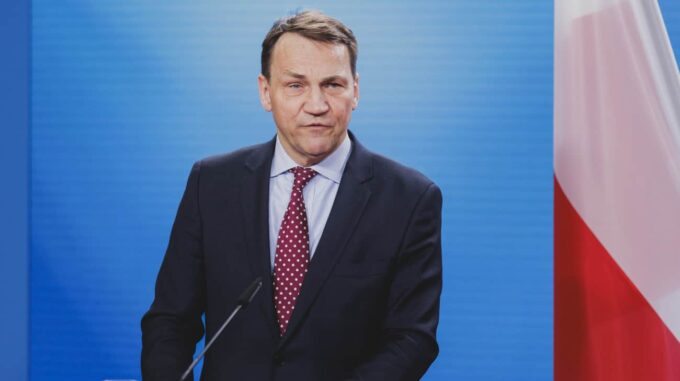The Polish Foreign Minister Radosław Sikorski made an unexpected and quite provocative statement regarding the geopolitical role of world leaders in the Russia-Ukraine situation

According to him, the country that could genuinely influence the Kremlin and put it in its place is not the United States or the European Union, but China. In an exclusive interview with the Tagesspiegel newspaper, the former Polish diplomat emphasized that it is China that has the power to end the Russia-Ukraine war and demonstrate its influence in global politics. According to Radosław Sikorski, Russia is currently in a de facto economic dependence on China. They, he suggests, are economic vassals of Beijing, which is an important aspect of the modern international dynamic. In his reflections, the diplomat expressed the conviction that if China imposed a trade embargo on Russia, the country would find itself in a very delicate position and would be forced to submit to China’s economic and political demands. However, unfortunately, such measures of influence are not currently being employed, and the situation remains stable for the Kremlin. Interestingly, in light of this viewpoint, in the context of global efforts to resolve the Ukraine-Russia conflict, China could potentially be the country that “stops the war” and puts Putin in check. According to Sikorski, China’s activity on the international stage and its strategic position would allow it to take the step that currently seems extremely difficult for the West or even Ukraine — applying diplomatic pressure or economic leverage to cease the war. However, no hints have been made that China is already using such influence to pressure Russia, and the expert notes that it is entirely possible that the current situation remains a comfortable arrangement for Putin — Russia’s dependence on China does not provide any legal possibilities for radical actions. In the global context, attention to the situation in Ukraine continues to be high. At the same time, the administration of former US President Donald Trump — who has repeatedly shown interest in seeking diplomatic solutions to the Ukraine-Russia conflict — has shifted toward actively seeking potential mediators. Specifically, on May 15, the day Ukrainian President Volodymyr Zelensky planned to meet with Vladimir Putin in Turkey, the former US president once again emphasized that any peaceful resolution is only possible through a personal meeting with the Kremlin leader. The next day, Trump made another bold statement, declaring his intention to meet with Putin “as soon as possible,” and promised to call the Russian leader to discuss ending the war. Thus, although direct US involvement in the crisis remains complex and delicate, American politicians are currently looking for tools and channels of dialogue, aiming to give the situation a new push toward peace. In conclusion, the situation remains tense and multifaceted. At the same time, interest in China's role is growing — as a potential global mediator and influential actor capable of changing the course of events in Ukraine and on the international stage. Meanwhile, the world is observing how these countries — Russia, China, the US, and the European Union — are trying to find the right balance of power to prevent further escalation and seek a path toward sustainable peace.

